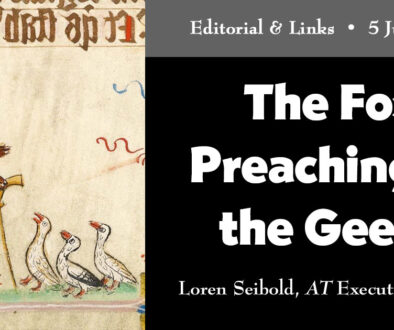Sharing Scripture for April 11 – 17, 2021
[symple_heading style=”” title=”All Future Generations” type=”h1″ font_size=”40″ text_align=”center” margin_top=”0″ margin_bottom=”30″ color=”undefined” icon_left=”” icon_right=””]
This is a tool for you to use if you lead a Sabbath School (SS) class or small group. It is keyed to the Bible texts used in the current week’s Adult SS lesson and includes a brief story from current news you can use to introduce the discussion and then a series of discussion questions in a relational pattern designed to build fellowship and spiritual reflection.
For use: April 11 – 17, 2021
Texts: Genesis 3:6; Genesis 6:5, 11; Genesis 6:18; Genesis 9:12–17; Isaiah 4:3; Revelation 12:17
For those of us who have found refuge in Netflix (or even glanced at social media) during COVID lockdowns, we most likely will recognize the show title Bridgerton. And in case you don’t, here’s the scoop: it’s the hottest thing to hit the web since The Witcher and Tiger King. As in, it’s one of Netflix’s most-watched shows. Ever.
That explains why fans were shocked when it was announced series lead Regé-Jean Page would not be returning to the hit web series. Sparking even more intrigue is the fact that many believe the young actor may be moving on to something bigger: the James Bond franchise. Although the possibility is exciting to contemplate, it’s rare that a leading character can be replaced without negatively altering the dynamics (try imagining Law & Order: SVU without Mariska Hargitay).
Bond is especially rare in that the suave spy’s constant replacements are given the same characteristics to portray. And the successors somehow do so successfully, and in some cases, even more convincingly.
But perhaps the greatest representations of substitutes are found in the Bible. As far back as Genesis and as recent as Revelation, we are met with the motif of God providing substitutes in place of human bloodshed and a broken Creation.
In Genesis 3 we see that the first humans sinned, and by Genesis 6:6, 7—over the course of a short history—sin had become so prevalent that God grieved and decided to destroy all living things that had been spoken into existence. This is when God chose Noah to become the father of a new, post-Flood world. God then replaced the original creation with those aboard the ark.
Once Noah was on dry land, he and his children were given the same instructions as the first humans: be fruitful, multiply, and have dominion over the creeping things of the earth (Genesis 9:1-7). And it was then that God made a covenant with them and all future generations (Genesis 9:8-17) to never again destroy all life—the remnant of who and what remained after the Flood. Remember, Noah’s family, or remnant, was set apart from destruction because they followed in God’s righteousness.
This covenant and remnant are everlasting. Isaiah 4:3 details this holy, loyal people as still being under the covenant made between the Lord and Noah, and therefore still under God’s protection even to the end of days (Revelation 12:17).
Therefore, unlike actors, we don’t have to worry about our future replacements because the Lord, who took our spot on the cross, will never replace us.
[symple_divider style=”solid” margin_top=”20″ margin_bottom=”10″]
Connecting: The Flood, the Crucifixion, and baptism all represent dying to sin and rising up in new life, overcoming the old. Among your group, over your online connections if you are not yet meeting in person, spend a few minutes thinking about how you could explain the uniformity of these symbols—penned in different ages by different authors—to a Bible skeptic.
Sharing: Why did all living things need to be destroyed during the Flood if it was humans who brought sin into the world?
- God needed to create a new ecosystem to function in a broken world
- Sin had also corrupted the flora and fauna
- It wasn’t necessary but it was symbolic
- It was convenient, and flora and fauna aren’t as important as human life
- Not everything was destroyed; that’s how Noah’s dove could retrieve an olive branch
- Other:
Applying: Try explaining the greater significance of the Flood story to someone you know who, as of now, may only know the catastrophe portion of the tale. Be ready to respectfully engage in open dialogue with them about it. Share your experience with your small group the next time you meet, whether in person or online.
Valuing: God provides a rainbow to remind us of the covenant. What other every-day sights or objects remind you of God’s love? Spend some time reflecting on those and take a moment to thank God for the chance to live as a new creation through Jesus Christ.
~ Stefani Leeper
Photo credit: Google Meet




